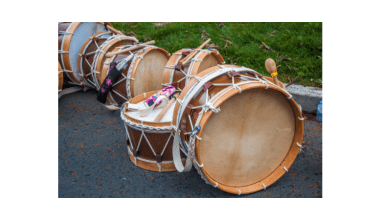Let’s start with the basics: music publishing royalties are the payments you earn when your music is used. These royalties are one of the main ways songwriters and composers make money. If you’ve written a song or contributed to the creative process, you’re entitled to royalties whenever your work is performed, streamed, sold, or licensed.
How Do Music Publishing Royalties Work?
Imagine this: you write a song. That song becomes a hit, and people play it on streaming platforms, the radio, or even in TV shows and movies. Every time your song is played, you should get paid. But here’s the catch—there are several different ways royalties are collected, and understanding them can feel overwhelming.
To simplify things, let’s break it down:
- Performance Royalties: These are earned when your music is played publicly, like on the radio, in a live concert, or streamed online.
- Mechanical Royalties: These are generated when your music is reproduced, like when it’s streamed on Spotify or downloaded from iTunes.
- Synchronization (Sync) Royalties: These are paid when your music is used in movies, TV shows, ads, or video games.
Why Are Music Publishing Royalties Important?
For songwriters and composers, royalties are the lifeblood of their income. Unlike performers who may earn money from concerts or merchandise, songwriters depend heavily on these payments. Royalties ensure that creators are compensated for their hard work and talent.
How Are Music Publishing Royalties Collected?
This is where things can get a little tricky. To collect your royalties, you’ll typically need to work with a few organizations:
- Performing Rights Organizations (PROs): These include groups like ASCAP, BMI, and SESAC. They collect performance royalties on your behalf.
- Mechanical Rights Agencies: In the U.S., agencies like the Harry Fox Agency handle mechanical royalties.
- Music Publishers: If you work with a publisher, they’ll manage your catalog and help collect all types of royalties.
Common Challenges in Music Publishing Royalties
While royalties are essential, many songwriters face challenges, such as:
- Tracking Royalties: It can be hard to know how much you’re owed and whether you’re getting paid correctly.
- Understanding Contracts: Some agreements can be complex, and you might unknowingly give up a large portion of your earnings.
- Global Collection: If your music is played internationally, you’ll need help ensuring royalties are collected worldwide.
Tips for Maximizing Your Music Publishing Royalties
Want to make the most of your earnings? Here are some actionable tips:
- Register Your Songs: Make sure all your compositions are registered with a PRO and any relevant agencies.
- Work with a Publisher: A good publisher can help you find opportunities and ensure you get paid.
- Audit Your Royalties: Regularly check that you’re receiving the correct payments.
- Learn the Basics: The more you understand about royalties, the less likely you are to miss out.
The Future of Music Publishing Royalties
The music industry is constantly evolving, especially with the rise of digital platforms. Streaming services like Spotify, Apple Music, and YouTube have reshaped how royalties are calculated and distributed. As technology advances, creators will need to stay informed to ensure they’re fairly compensated.
Conclusion
Music publishing royalties might seem complicated, but they’re essential for anyone creating music. By understanding how they work and taking steps to protect your rights, you can ensure a steady income from your hard work. Whether you’re just starting or have been in the industry for years, staying informed is your best tool for success. trusted companion for every step of your musical journey.
Related Articles:
For further reading, explore these related articles:
- How to Build a Studio: A Comprehensive Guide
- Building Your Dream Small Sound Studio: A Complete Guide
For additional resources on music marketing and distribution, visit DMT Records Private Limited.






